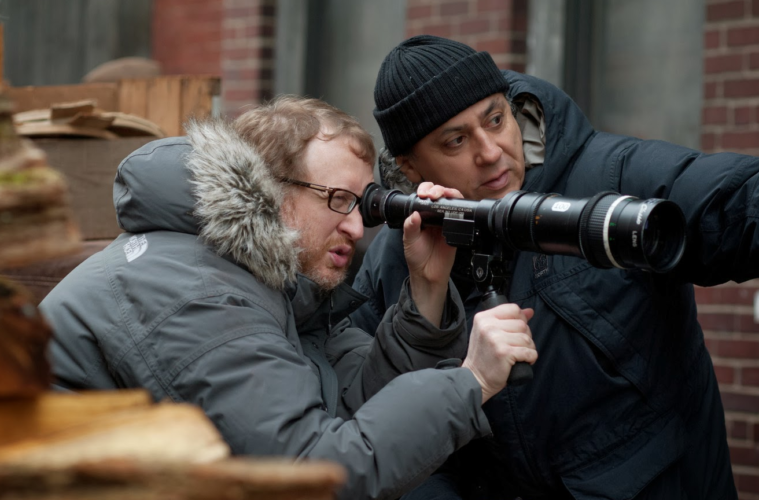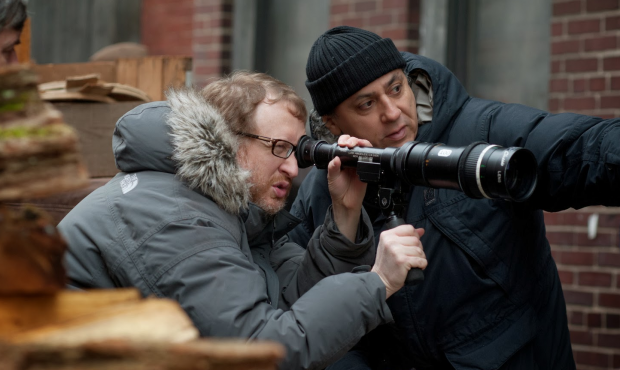Even with a painfully small number of films made over the course of two decades, James Gray has established a unique voice within American cinema. No matter how indebted many think he is to the much-considered golden age of ’70s movie brats, his cinema bears, if anything, the mark of a life that’s been lived rather than seen through a silver screen. It’s evidenced in his primary occupations: family, heritage and the city of New York (specifically Queens and Brooklyn), all of which complement one another through narratives of self-realization and class struggle. The leads of his films are often, essentially, in some form of escape, all while entrapped through the standards of their family or, even, a mythology.
Little Odessa (1994)
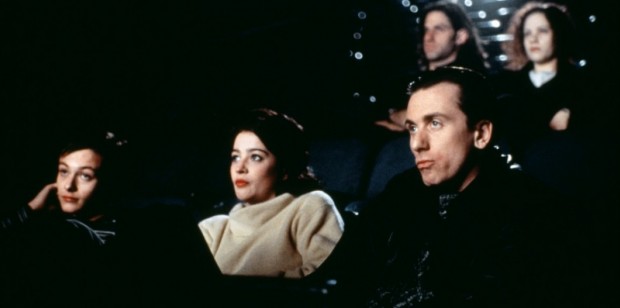
Gray’s first feature begins with the carrying out of a work task by the film’s lead, Joshua: the act of killing, rather than, for instance, driving a truck or standing behind a store counter. Working simply as a hit man for New York’s Russian mafia, his life isn’t one of the decadent gangster, but simply cold and dirty murder. As presented through the prism of Gray’s films, the job is the life, with Joshua proving overtly cold and solitary. Yet once he returns to the eponymous working-class Brooklyn neighborhood of his Russian immigrant family, everything is bound to change.
In this case, Joshua’s nationality is important when discerning the degree to which he’s become estranged from his family. As played by Tim Roth with the typical British-actor-putting-on-a-Brando/Dean American accent, he further comes across as someone with a constructed tough-guy identity. On the other hand, his far-younger brother, Reuben, isn’t necessarily any different, which, as played by Edward Furlong, strangely complements his iconic Terminator 2 role. This, however, is less of an early-90s bad-boy heartthrob and more the appearance of a genuine outsider, drifting from one mundane activity to another through a cold winter. The difference between Joshua and Reuben is that the latter doesn’t necessarily have some good reason for isolation from his family that extends past pure boredom.
While Joshua’s disowned by his father, Arkady (him even telling Reuben that he’s not his brother anymore) for enacting a life of crime, the family patriarch isn’t necessarily deserving of his own moral high ground, being that he’s cheating on his dying wife / his children’s mother with a younger woman. (He further justifies himself by the working-class position of a newsstand clerk, which he’ll presumably do until the day he dies to support Reuben.) Once Joshua returns to Reuben’s life, however, the sibling exudes an undeniable pull, both in that he assumes the parental role he thinks Arkady can’t fulfill and that Reuben sees in him a contrast to his going-through-the-motions father. Yet the film wisely makes further insistence on Joshua not actually being the cool, confident killer that a teenage boy would take him to be, with the repeated, ostentatious flashing of his firearm signaling an immaturity that still lies beneath his steely attitude.
While describing the literary qualities of Gray’s films is easy, to overlook his formal traits is to not really understand their ultimate specificity. His aesthetics often seem more European than American: both the length of the takes and the frequent distance from characters in his exceptionally wide shots make the setting of Brighton Beach feel expansive when its characters see the place as restrictive. Even the film’s climactic shoot-out (or, rather, series of inelegant murders) is set solely in a suburban backyard, making fences and clotheslines all feel part of a labyrinthine structure.
Yet, in considering locations, Manhattan, like in most of Gray’s films, is never seen onscreen, for the aspirations of Little Odessa‘s characters don’t seem to align with the American Dream. Just getting by is enough, but even that will inevitably lead to tragedy.
The Yards (2000)
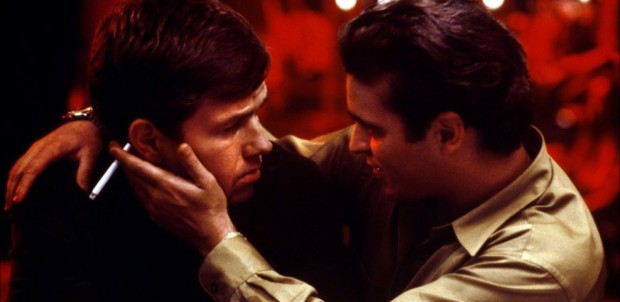
Within any film, the utterance of “I just want to be a productive person” should be an instant signifier that something very bad is about to happen. This sense of impending doom is very apparent throughout The Yards, as even a welcome-home party at the outset is rife with the tension of forgetting past sins, seeing as its recipient, Leo, is only back to his childhood Queens home following the end of a prison stint.
The first step in Leo’s tragedy, though, is his assumption that a reintegration into society is dependent upon those from his past. By that token, he also assumes that the requirements of both a steady job and reliable social circle should still be fulfilled by his childhood best friend, Willie, who was both responsible for his original crime and will draw him into the next.
Part of why Leo can’t escape Willie’s influence is that he’s essentially placed himself within the latter’s family, being an item with his friend’s cousin, Erica. Importantly, this brings forth the film’s concept of reconfigured families, as also seen with Leo’s aunt, Kitty, who remarries to a business owner, Frank, and thus places herself and her daughter into an upper-middle-class life. The separation between Leo, his mother, and their family becomes apparent with a trip to the suburbs for dinner, with particular regards to their spacious home — complete with a number of rooms that Gray will later emphasize when staging a series of dramatic confrontations.
That, itself, follows in the formal traditions of the best melodramas — whether they be from Nicholas Ray or Douglas Sirk — which made a spectacle out of domestic spaces and their downright strategic architecture, whether they be Frank’s home office (where devastating revelations will be made to Willie) or a staircase (where an accidental murder later takes place). Even while The Yards is heavily nocturnal, it ends up emphasizing interiors more than Little Odessa’s wintry outdoors; Harris Savides’s lighting transforms every one of these homes into what are essentially tombs. (Note the use of candles, which seem to make the film feel like it’s set in the 19th century rather than the late ’90s.)
In specific regards to its actors, this is perhaps the only film in which Mark Wahlberg emphasizes his eyes rather than his body or masculine demeanor; Leo is a mute witness, like Little Odessa’s Reuben, essentially manipulated by all those surrounding him or even playing spectator to what seems outside his control. His arc is, of course, to transcend this passivity, though by the film’s end he’s only rewarded with the most minor of victories: departing Queens on a train, which clearly mirrors the film’s beginning (this is a common narrative trait of Gray). While Leo may not be attaining his mother’s dream of one day being a suit-wearing businessman in downtown New York, removing himself from his home may at least serve as the first step in attaining independence from his family’s trouble — even if it’s likely he’ll sooner rather than later ride back into Queens.
We Own the Night (2007)
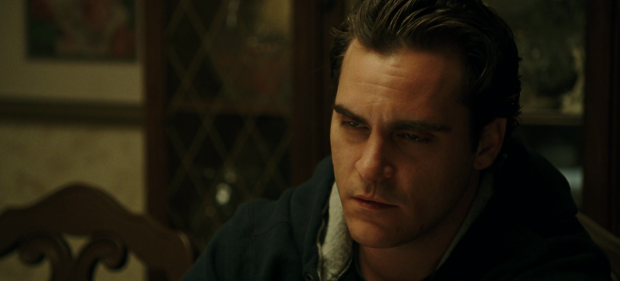
The great title of Gray’s third feature comes from a slogan that used to be worn on NYPD uniforms — a defying statement of moral authority passed down from generation to generation, here evidenced by the montage of black-and-white archival photos that begin the film. Essentially, it asserts their mythology, one far more public than that of the other families which occupy Gray’s previous pictures. In turn, a conflict of passion versus procedure becomes easily established once this montage ends and Blondie’s “Heart of Glass” abruptly blasts onto the soundtrack; the smash-cut to our hero, Bobby, gazing at his gorgeous girlfriend — paired with the iconic new wave beat — will, in an instant, erase any desire for the seemingly righteous life.
A self-made man as a nightclub manager, Bobby’s identity is entirely separate from that of his father and brother, esteemed members of the NYPD both. He even goes to the point of shunning their namesake for his mother’s maiden name. Furthermore, he’s formed a new family unit consisting of his girlfriend, Amada, best friend, Jumbo, as well as a new father figure in his boss, Marat Buzhayev, who goes to the point of frequently inviting Bobby into his own home. His further dreams are hinted at, including opening a new club in Manhattan, but are subsequently never mentioned again once the narrative comes to its full thrust, the man now having to decide between independence and the family business — either of which could leave him dead.
The threat of this end is perfectly represented in Gray’s set-pieces, which are always heavy on subjectivity, whether they be the failed assassination attempt in The Yards or the rain-soaked car chase in this film. They always make a point of partly obscuring the protagonist’s vision, whether through cracks in doors, windshields, hospital sheets, or reeds, with their hesitance toward and paranoia of a life outside their understanding becoming fearfully articulated. Often, in these cases, Gray selectively employs hand-held camera work, creating necessary psychological and emotional dissonance within his very careful, classical compositions and edits.
Of course, this is typical to Gray’s depiction of violence. While, in a disorienting chase at the end of the film, Bobby shoots down Vadim, the man responsible for the death of his father and the attempt on his brother, the act is stripped of either redemption for the character or a gleefully nihilistic kick for the audience. Rather, Bobby sees Vadim bleed to death, using his last words to utter his name, as if even this seemingly malicious gangster had his heart broken by someone he once trusted. Further to this larger point, it serves as a reminder that the detriment of the cop life isn’t just reduced to the threat of suddenly dying in the line of duty, but the weight of blood on your own hands.
Yet, despite what he witnesses, Bobby is accepting of the fate he thinks he deserves, even with warnings from his own brother. But a hushed final exchange of “I love you,” shared between the two at Bobby’s police graduation, seems a mutual acknowledgement of the bloodline now firmly entrenched within the law enforcement world without any hope of escape; they’ll eventually become one with the figures only remembered in those black-and-white photos.
Two Lovers (2009)
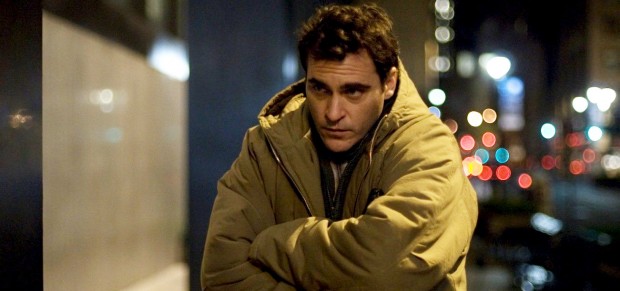
Pushing the world of gangsters, hit-men, and drugs aside for a romantic melodrama, Gray, with Two Lovers, brings his characters’ sensitivities to the complete narrative forefront — even if, in this case, Joaquin Phoenix’s Leonard spends much of the runtime attempting to hide what he feels.
Beginning the film with a suicide attempt wherein he flashes back to the fiancée who left him, Leonard is, as previously noted, absent of the criminal or macho posturing of Gray’s other leads. In fact, knowing Gray’s public persona (just watch any of his Q & A appearances) as someone somehow simultaneously serious about his work and wholly comic regarding everything else, it even becomes easy to read Leonard as his clearest stand-in of a lead: the goofball artist who, above all, is a deeply earnest romantic.
While blatantly returning to Little Odessa’s Jewish-Russian immigrant family and location, Leonard differs significantly from Joshua. It’s not only that he still lives with his parents, but that he’s also accepting of his place within the family business, dry-cleaning (itself a wonderfully mundane occupation), while harbouring a desire to be a photographer. At a dinner between his family and another belonging to an interested buyer of his father’s business, he meets Sandra, who’s instantly attracted to his kindness and eccentricities, wholly willing to take him in.
The film, however, manages to verge slightly into genre territory with the second woman in Leonard’s life, Michelle. For living in the apartment across him, Gray inevitably recalls Hitchcock in making Leonard a voyeur of sorts. Him inevitably observing her while talking to Sandra on the phone is one component, but there’s the fixation on details of her appearance, such as when he notices her blonde hair at a subway station and subsequently follows her.
Furthermore, once Michelle makes Leonard aware of Ronald, the rich married man she’s seeing (and who pays for the apartment she lives in), she becomes even more of an enigma. At one point, Leonard ventures outside his neighborhood and into Manhattan on Michelle’s insistence to act as a buffer between her and Ronald on a date. He proves hopelessly awkward, not just due to the situation, but his misplacement in such an upper-class setting (Gray’s mise-en-scène even comically dwarfs him) which further fuels an inferiority complex.
The melodrama involving Ronald, though, is so much outside Leonard’s understanding, both in the actual events and background — to which he’s only privy through Michelle’s venting — as well as, more importantly, the very notion that someone wouldn’t love her the way he does. In pleading his affection to her, she remarks that he doesn’t really feel that way, as is only natural when she’s too “fucked-up.” While maybe she is or maybe she isn’t, Leonard is inevitably drawn to what he can’t completely comprehend.
While the film never acts condescending or mean-spirited toward Sandra and what she offers Leonard, when confronted by her father in his office, near the film’s end, he clearly positions their relationship as essentially a business union between himself and Leonard’s dry-cleaning establishment. While this is out of her control, for Leonard it means spending the rest of his life in the same place, surrounded by the same people.
Still, by the end, after having his heart broken by Michelle, Leonard tosses away the engagement ring he bought for her, only to retrieve it on the beach for Sandra, this reversed decision mirroring his aborted suicide at the picture’s outset. Two Lovers’ conclusion, while suggesting Leonard has accepted an extremely compromised happiness, might just be the closest thing to a happy ending in Gray’s filmography.
The Immigrant is now in limited release. Read our extensive conversation with James Gray.

